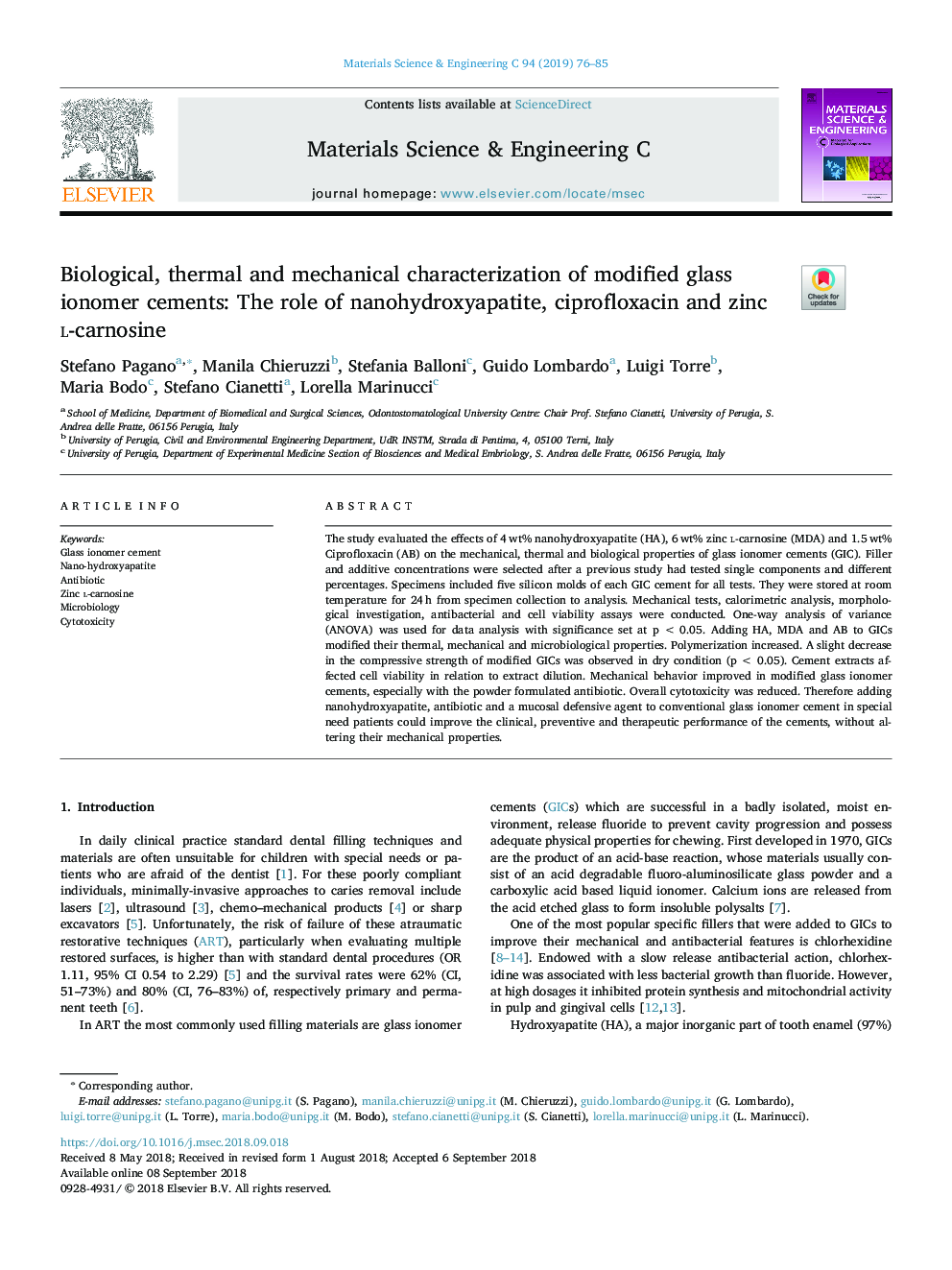| Article ID | Journal | Published Year | Pages | File Type |
|---|---|---|---|---|
| 10155299 | Materials Science and Engineering: C | 2019 | 10 Pages |
Abstract
The study evaluated the effects of 4â¯wt% nanohydroxyapatite (HA), 6â¯wt% zinc l-carnosine (MDA) and 1.5â¯wt% Ciprofloxacin (AB) on the mechanical, thermal and biological properties of glass ionomer cements (GIC). Filler and additive concentrations were selected after a previous study had tested single components and different percentages. Specimens included five silicon molds of each GIC cement for all tests. They were stored at room temperature for 24â¯h from specimen collection to analysis. Mechanical tests, calorimetric analysis, morphological investigation, antibacterial and cell viability assays were conducted. One-way analysis of variance (ANOVA) was used for data analysis with significance set at pâ¯<â¯0.05. Adding HA, MDA and AB to GICs modified their thermal, mechanical and microbiological properties. Polymerization increased. A slight decrease in the compressive strength of modified GICs was observed in dry condition (pâ¯<â¯0.05). Cement extracts affected cell viability in relation to extract dilution. Mechanical behavior improved in modified glass ionomer cements, especially with the powder formulated antibiotic. Overall cytotoxicity was reduced. Therefore adding nanohydroxyapatite, antibiotic and a mucosal defensive agent to conventional glass ionomer cement in special need patients could improve the clinical, preventive and therapeutic performance of the cements, without altering their mechanical properties.
Related Topics
Physical Sciences and Engineering
Materials Science
Biomaterials
Authors
Stefano Pagano, Manila Chieruzzi, Stefania Balloni, Guido Lombardo, Luigi Torre, Maria Bodo, Stefano Cianetti, Lorella Marinucci,
